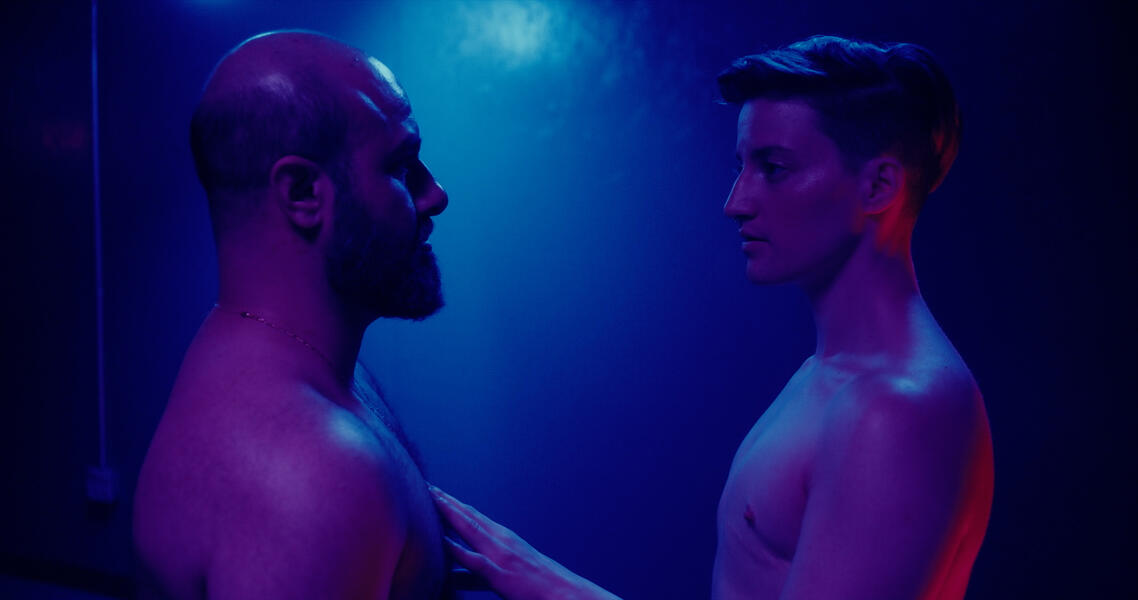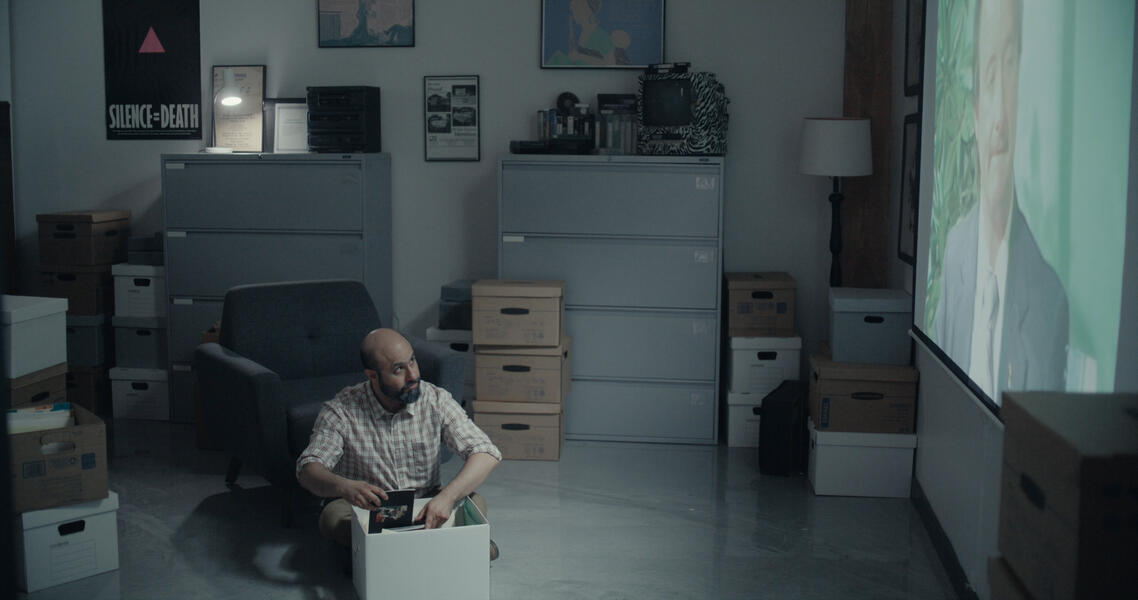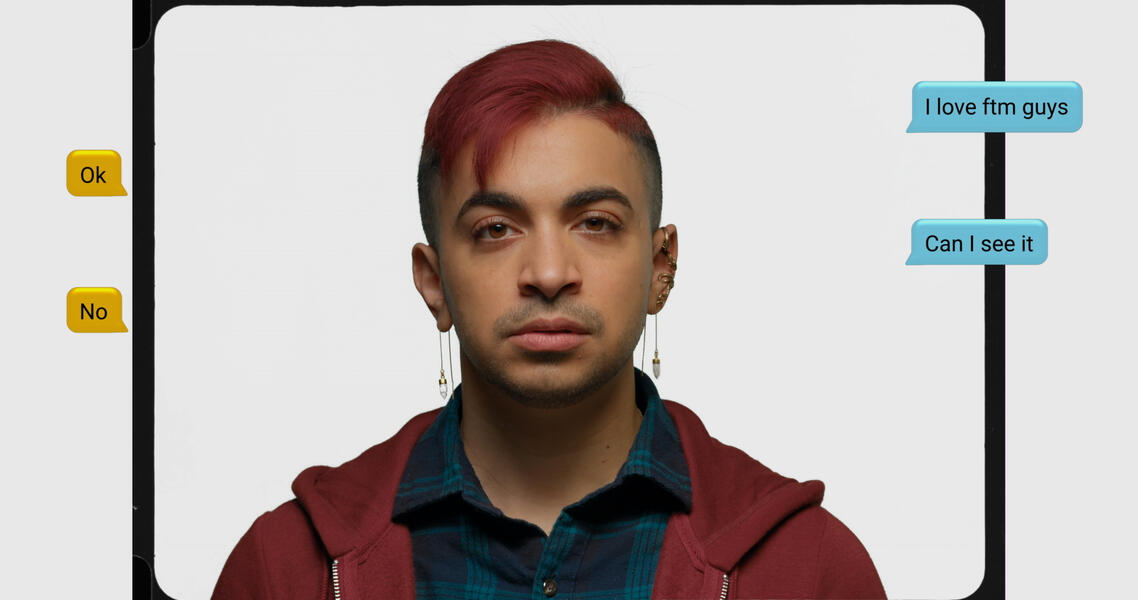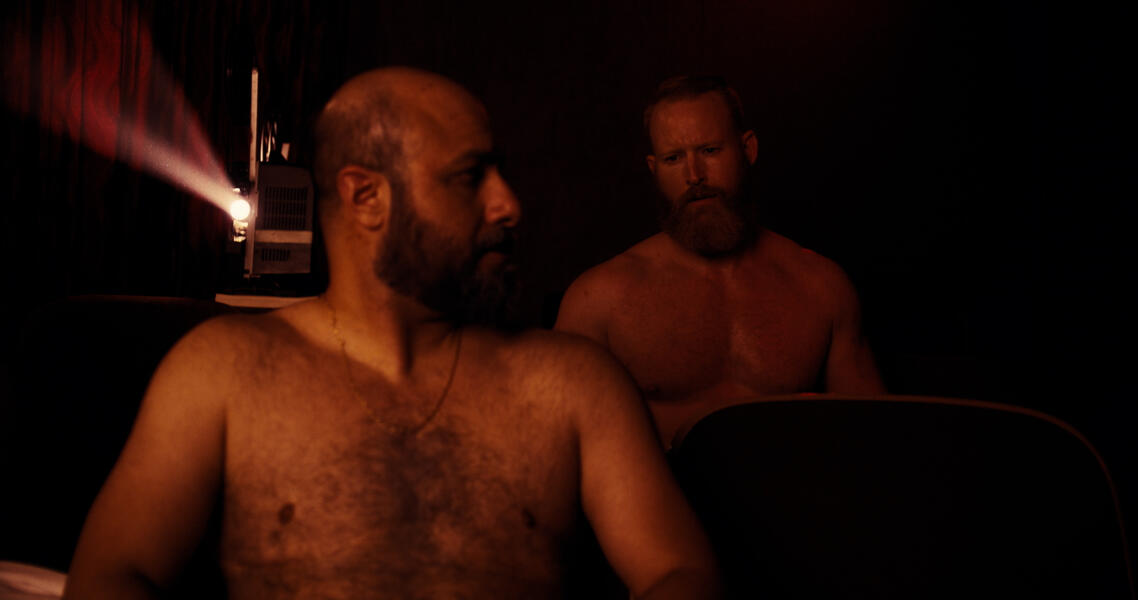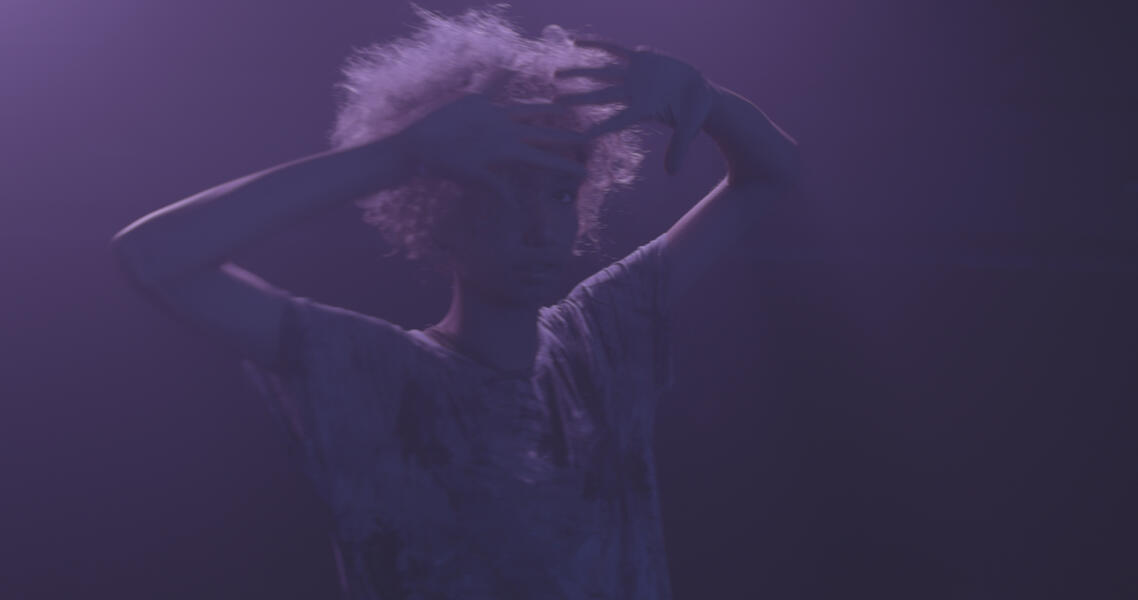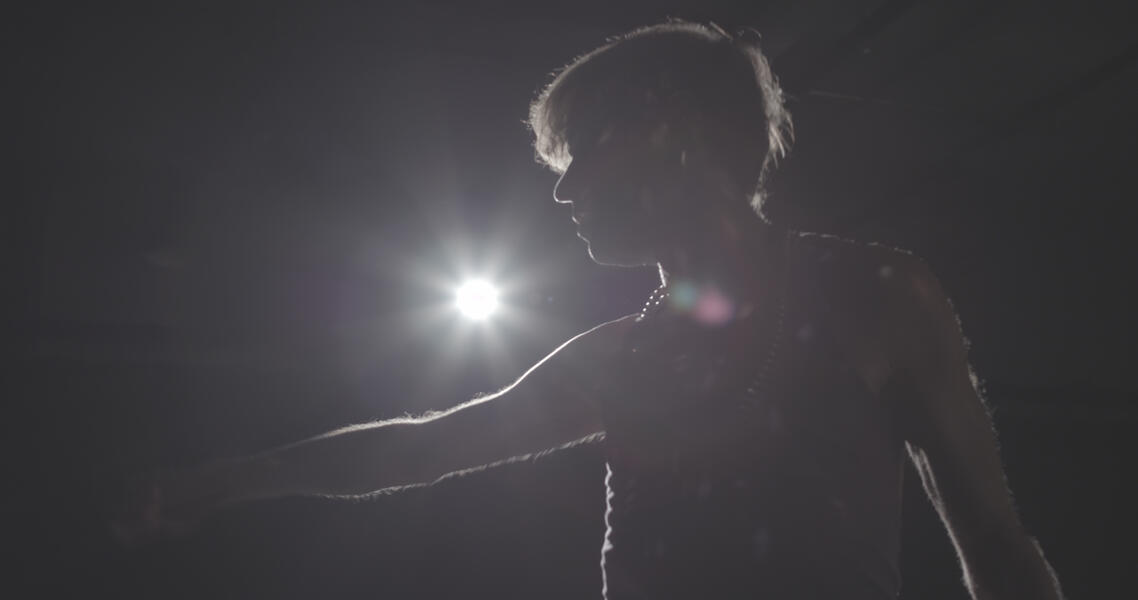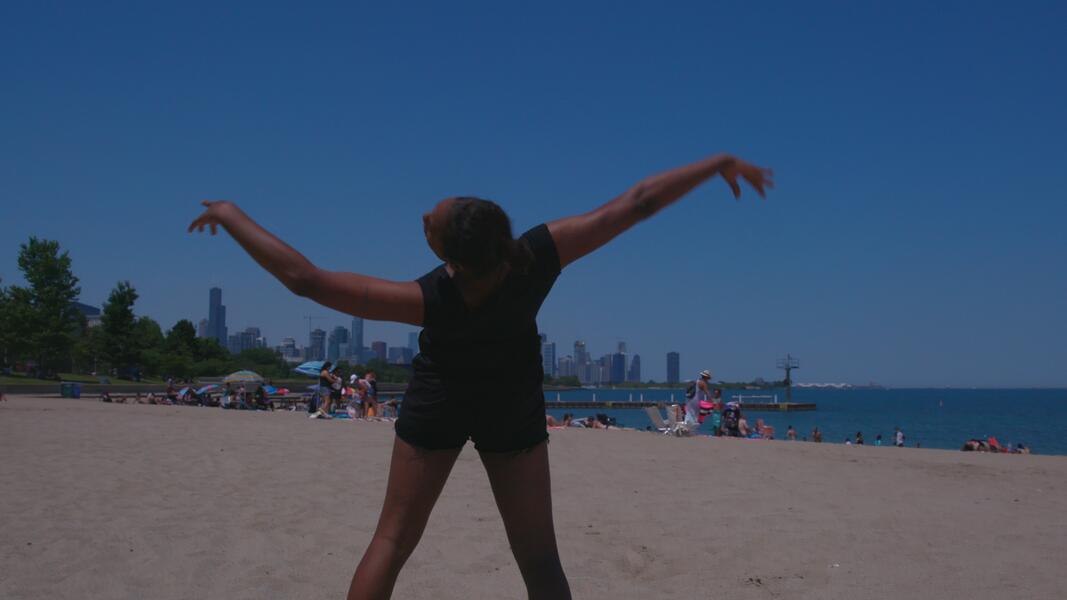Work samples
-
Dance, Dance. Evolution
“When I dance, that is my true gender.”
In Dance, Dance, Evolution six trans-identified people explore their relationship to dance over time. As one participant says, “What I feel when I’m dancing is the very decomposition of myself.” This short, joyful documentary looks at the ways in which the body in motion opens up the spaces between gender, race, and time, producing pleasure in indeterminacy. This begs the question, how do we take that idealized moment on the dance floor--where nothing matters but the beat--and take it with us everywhere we go?
-
Paternal Rites Excerpt (2018)This is the first 5 minutes of an 82 minute essay film. Paternal Rites is a first-person essay film that examines the secret underbelly of a contemporary Jewish American family as they grapple with the aftereffects of physical and sexual abuse on their present-day lives. It is also a groundbreaking film about the nature of trauma and memory itself: the ways in which trauma encrypts in uncanny ways; the function of speech and narrative in the process of decryption; and the role of film and filmmaking in the practice of healing. Paternal Rites draws inspiration from podcasts like This American Life and Radiolab and the long lineage of LGBT essay filmmakers in the U.S. such as Jenni Olson, Marlon Riggs, and Richard Fung.
About Jules
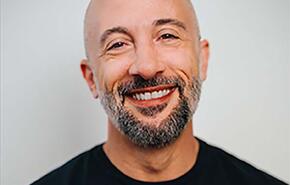
Jules Rosskam is an award-winning filmmaker, educator and interdisciplinary artist. Through the lens of autoethnography and the use of hybrid forms, his work investigates the means by which we construct individual and collective histories. He is consistently drawn to the rich discursive space of the liminal: the space between male and female, between documentary and fiction, between moving image and still. The liminal is a space in which identity dissolves and the possibility of… more
Desire Lines (2024)
An underground narrative has long been whispered among transgender men: after coming out as trans, many of us develop an attraction for other men. In this hybrid documentary, history comes alive when an Iranian-American transman time-travels on a dizzying quest to unravel his own sexual desires. As Ahmad approaches age 60, his long-suppressed desires for other men become impossible to ignore. Having grown up in an era when homosexual activity could block one’s access to medical transition, he can’t help but wonder whether his sexuality and gender identity are completely at odds. He turns to the LGBT archives for answers, where he meets a 20-something trans archivist named Kieran. As Ahmad falls deeper into the archive, he is quite literally sucked into the text—becoming a time-traveler who participates in the queer cruising history he reads about. This fictional narrative is interwoven with archival gems and a trove of contemporary oral histories from a diverse group of transmen across North America. These participants candidly discuss the evolution of their desires and illuminate their struggles with gender (non)conformity, fetishization, transphobia, sexual racism, and safer sex. Desire Lines pushes against binaries—fiction vs. non-fiction, reality vs. fantasy, public vs. private—in order to highlight the fallacy of “purity” that undergirds colonialist notions of discrete categories of being (or genre); embracing bewilderment as a liberatory strategy for trans representation.
SCREENINGS
Sundance Film festival (World Premiere)
Dance, Dance, Evolution (2019)
“When I dance, that is my true gender.”
In Dance, Dance, Evolution six trans-identified people explore their relationship to dance over time. As one participant says, “What I feel when I’m dancing is the very decomposition of myself.” This short, joyful documentary looks at the ways in which the body in motion opens up the spaces between gender, race, and time, producing pleasure in indeterminacy. This begs the question, how do we take that idealized moment on the dance floor--where nothing matters but the beat--and take it with us everywhere we go?
ScreeningsDance on Camera Film Festival (World Premiere)
Portland Dance Film Festival — Winner, Best Documentary
Kansai Queer Film Festival
Melbourne Queer Film Festival
Seattle Queer Film Festival—Audience Award, Best Transgender Short
NewFest Film Festival
Frameline LGBT Film Festival
Necessity of Tomorrow(s), Baltimore Museum of Art
San Francisco Dance Film Festival
The Bush Films
Queens World film Festival
Queensboro Dance Festival
Dance on Film at Dance Place
Wicked Queer Boston LGBT Film Festival — Best in Show, Short Film
OUTShine Film Festival
Way Out West Film Fest
San Francisco Transgender Film Festival
Experimental Series / Salt Lake City
Uncaged Film Festical
Paternal Rites (2018)
Paternal Rites is a first-person essay film that examines the secret underbelly of a contemporary Jewish American family as they grapple with the aftereffects of physical and sexual abuse on their present-day lives. It is also a groundbreaking film about the nature of trauma and memory itself: the ways in which trauma encrypts in uncanny ways; the function of speech and narrative in the process of decryption; and the role of film and filmmaking in the practice of healing. Paternal Rites draws inspiration from podcasts like This American Life and Radiolab and the long lineage of LGBT essay filmmakers in North America such as Jenni Olson, Marlon Riggs, and Richard Fung.
Functioning as the film’s primary conceit, in the fall of 2013 filmmaker Jules Rosskam and his partner, Alex, set out to retrace a road trip that Rosskam’s parents, Marilyn and Skip, completed in the fall of 1974—just prior to his birth and their transition to suburbia and parenthood. The viewer hears audio diaries that Marilyn and Skip kept during the course of their four-month journey and sees photographs and travelogue footage recorded on Super 8: barely perceptible, grainy, and quickly receding signs and landmarks carry the viewer along their route: Boston, Mobile, Savannah, Chicago, Portland, Vancouver.
The visual field of Paternal Rites is dominated by bright, pristine, and nearly-still images of the American landscape, which haunt the viewer with their splendor and banality, and with the layering of still images over live-action footage. Paternal Rites also utilizes the white screen, where colorful animations and beautifully rendered, hand-painted 16mm film are used to evoke the psychoanalytic process of memory’s retrieval and trauma’s repair.
Implicit throughout is the filmmaker’s queer and transgender subjectivity, which floats to the surface of the screen as the viewer is confronted with fragments of home movies of his childhood—iconic in their unremarkability—and hears audio recordings of contemporary conversations between Rosskam and Alex, who functions as Rosskam’s partner in life as well as in this project of decoding his past on screen. Together, they create a stunning visual portrait about the power of film to transform us.
Screenings
Doc Fortnight, Museum of Modern Art
The Gene Siskel Film Center
BFI Flare LGBT Film Festival
The Queens World Film Festival
Wicked Queer, Boston LGBT Film Festival
XPOSED International Queer Film Festival Berlin
Inside Out: Toronto LGBT Film Festival
Creative Alliance
Zinegoak, the Bilbao International LGBTQ Film Festival
Massachusetts Multicultural Film Festival
Rice Cinemas
Anthology Film Archivesa
Kansai Queer Film Festival Japan
Trans Stellar Film Festival -- Awarded "Best Feature Film"
Tampa Bay International Film Festival -- Documentry Centerpiece Screening
Gender Reel Film Festival
Seattle TWIST film Festivl -- Awarded Honorable Mention from the Jury
Hamburg International Queer Film Festival
Transformations Film Festival Berlin
-
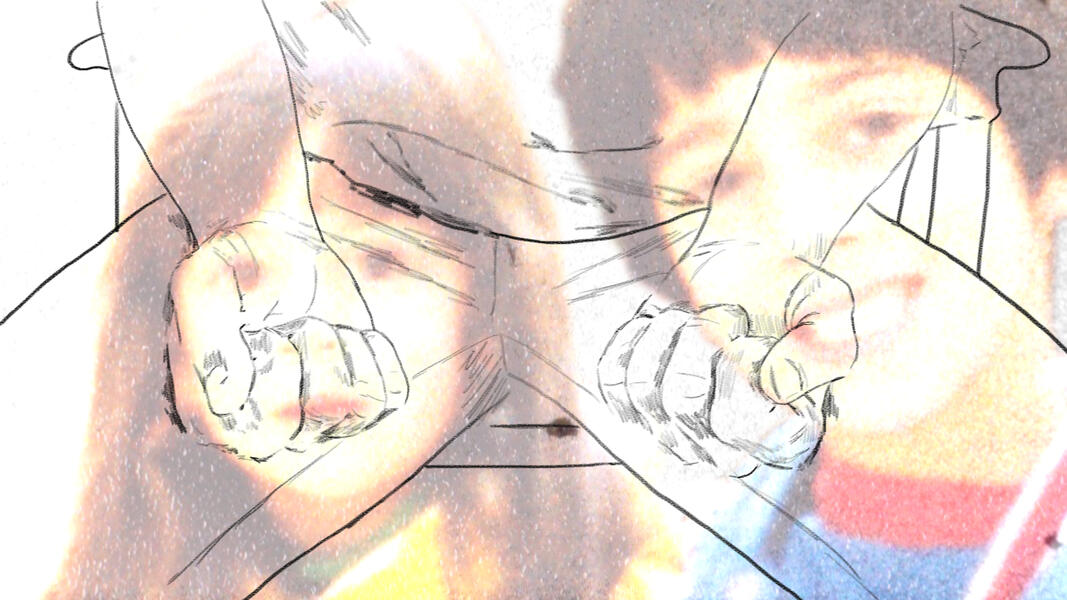 Paternal Rites Still 1.jpg
Paternal Rites Still 1.jpg -
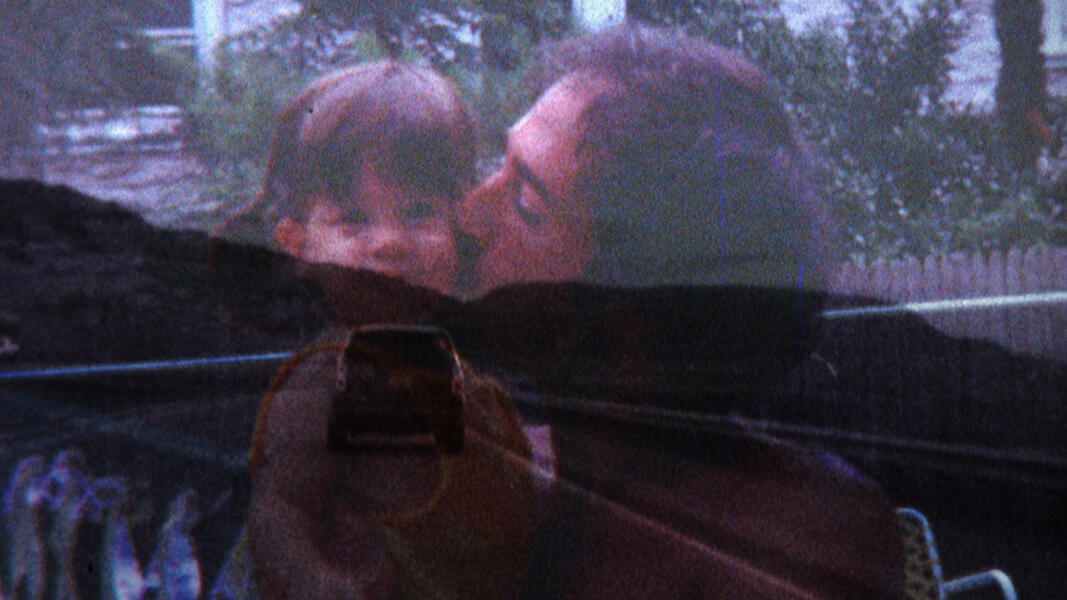 Paternal Rites Still 3.jpg
Paternal Rites Still 3.jpg -
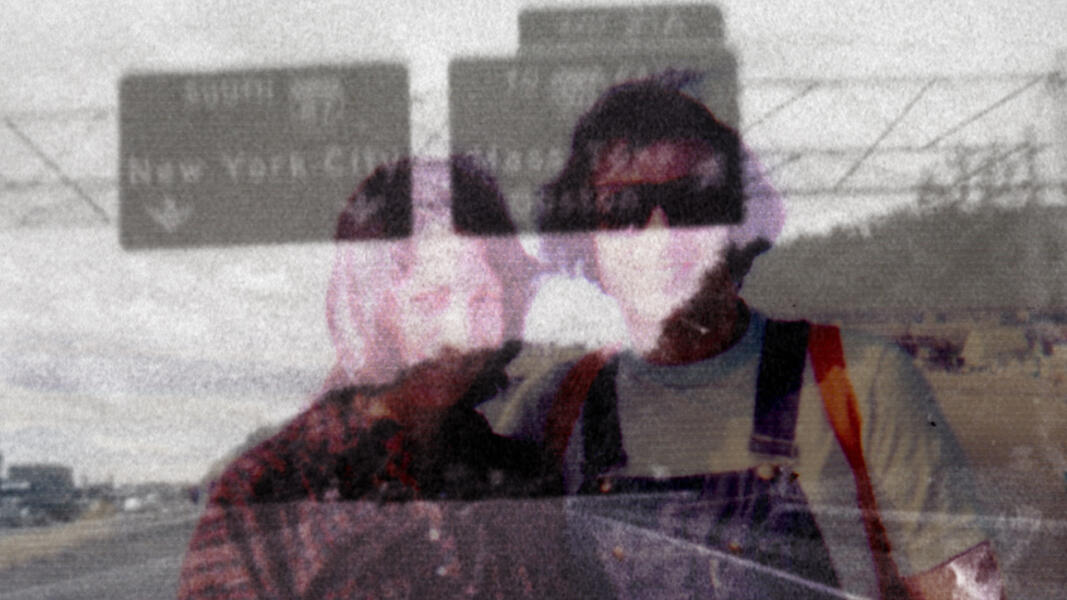 Paternal Rites Still 4.jpg
Paternal Rites Still 4.jpg -
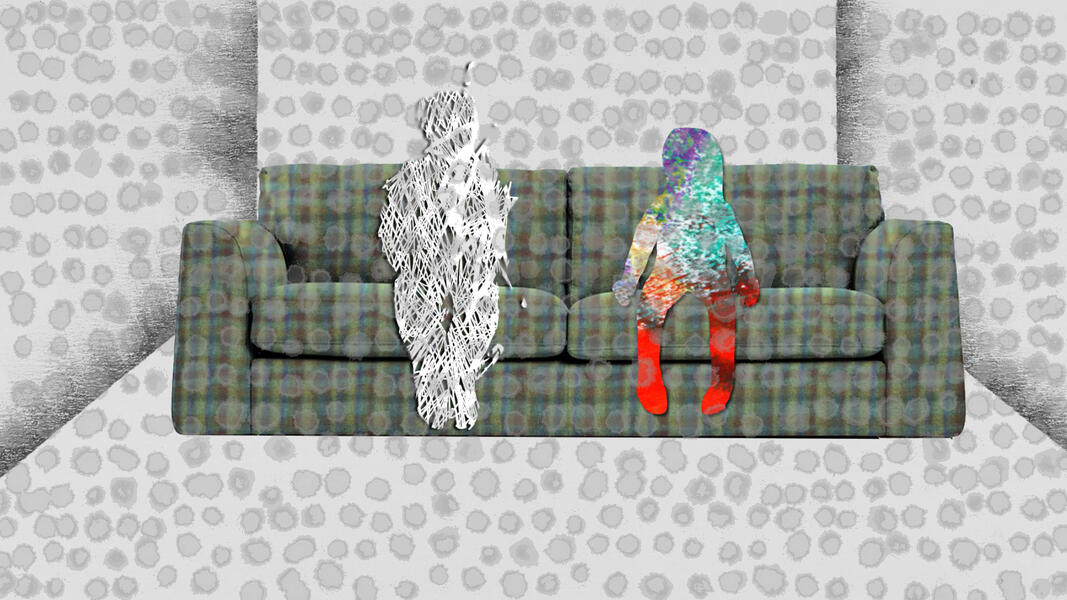 Paternal Rites Still 8.jpg
Paternal Rites Still 8.jpg -
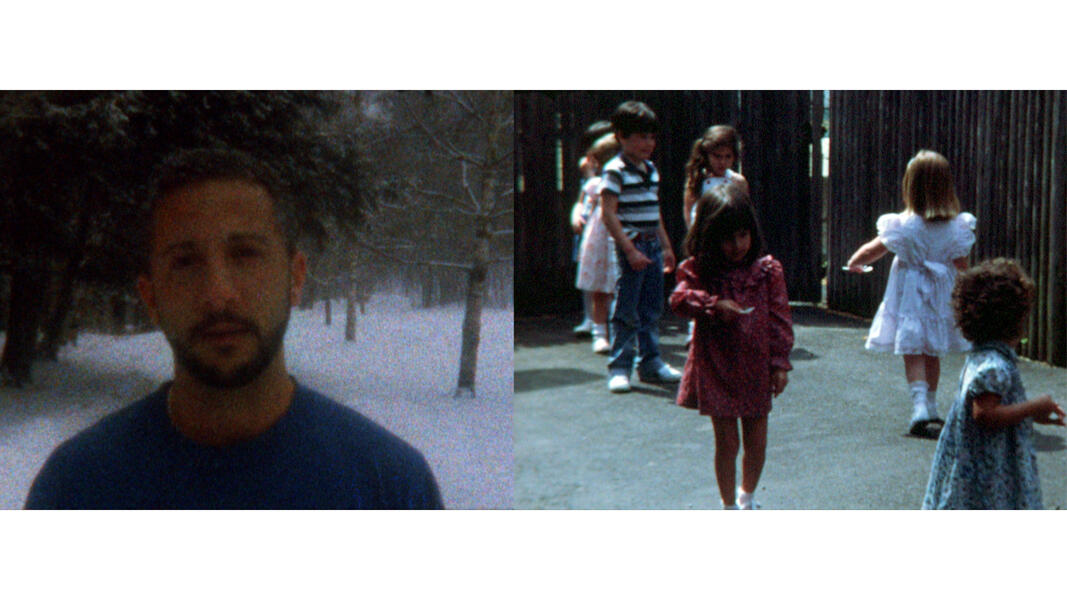 Paternal Rites Still 5.jpg
Paternal Rites Still 5.jpg -
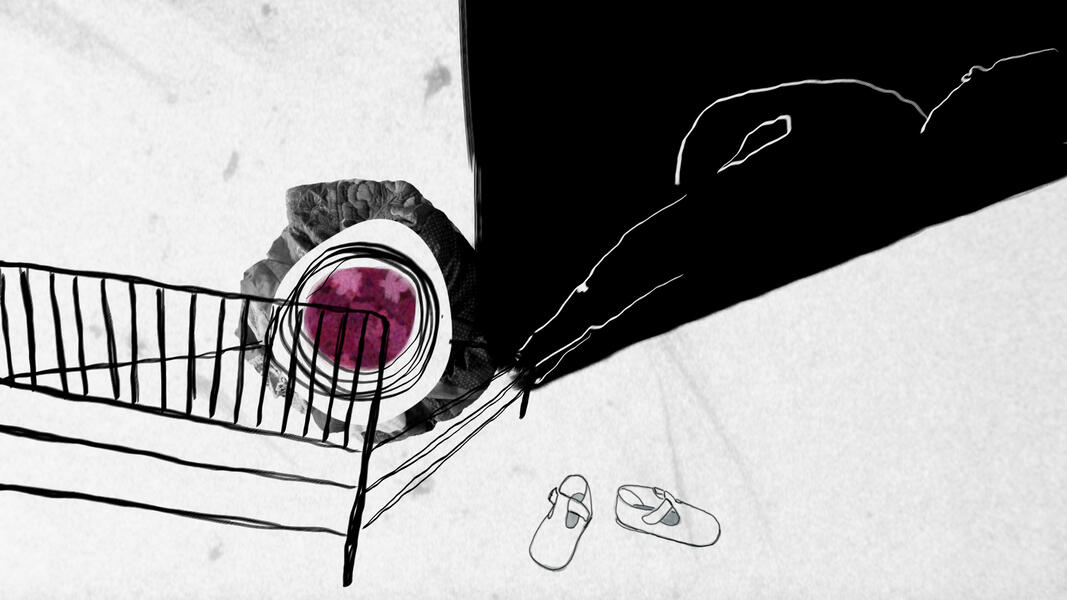 Paternal Rites Still 6.jpg
Paternal Rites Still 6.jpg -
Paternal Rites Trailer
-
Paternal Rites (full film)Paternal Rites is a first-person essay film that examines the secret underbelly of a contemporary Jewish American family as they grapple with the aftereffects of physical and sexual abuse on their present-day lives. It is also a groundbreaking film about the nature of trauma and memory itself: the ways in which trauma encrypts in uncanny ways; the function of speech and narrative in the process of decryption; and the role of film and filmmaking in the practice of healing. Paternal Rites draws inspiration from podcasts like This American Life and Radiolab and the long lineage of LGBT essay filmmakers in North America such as Jenni Olson, Marlon Riggs, and Richard Fung.
Something to Cry About (2018)
Synopsis
In Something to Cry About three trans-masculine identified people watch a movie or television show that makes them cry. The result is a touching and humorous short documentary that explores the difficulty of expressing intimacy between men, the complexities of desire, and the gift of a good cry.
Screenings
Tampa Bay International Lesbian and Gay Film Festival
Translations Film Festival
Maryland Film Festival
Hyde Park Picture House Leeds
Shanghai Pride Film Festival
Tilde Melbourne Film Festival
Transformations Film Festival Berlin
Northampton Film Festival
Kansai Queer Film Festival Japan
NewFest Film Festival
Anthology Film Archives, The Cinema of Gender Transgression
-
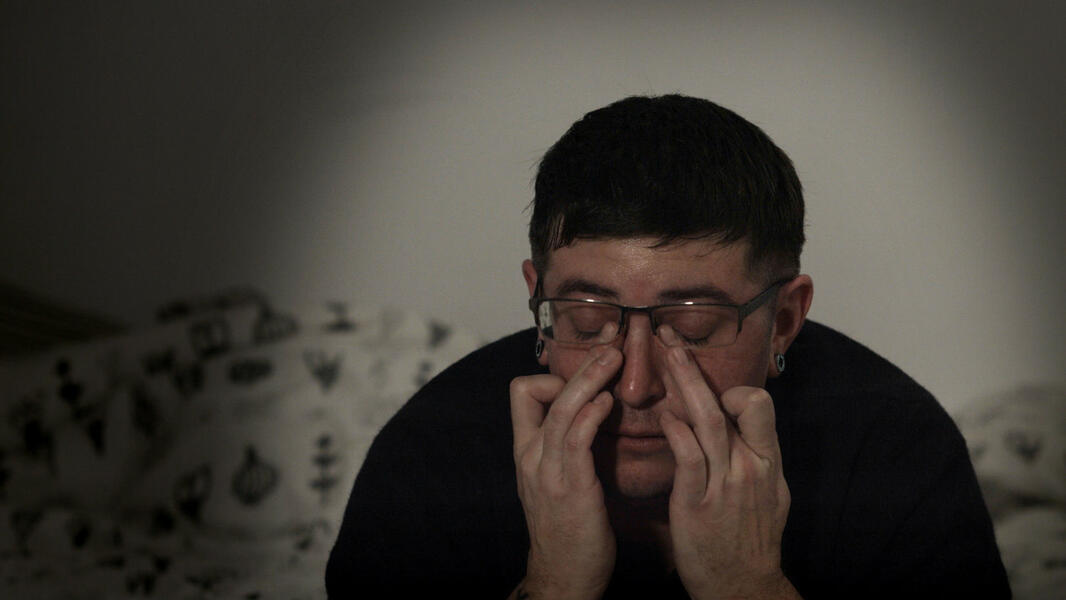 Something to Cry About Still 1.jpeg
Something to Cry About Still 1.jpeg -
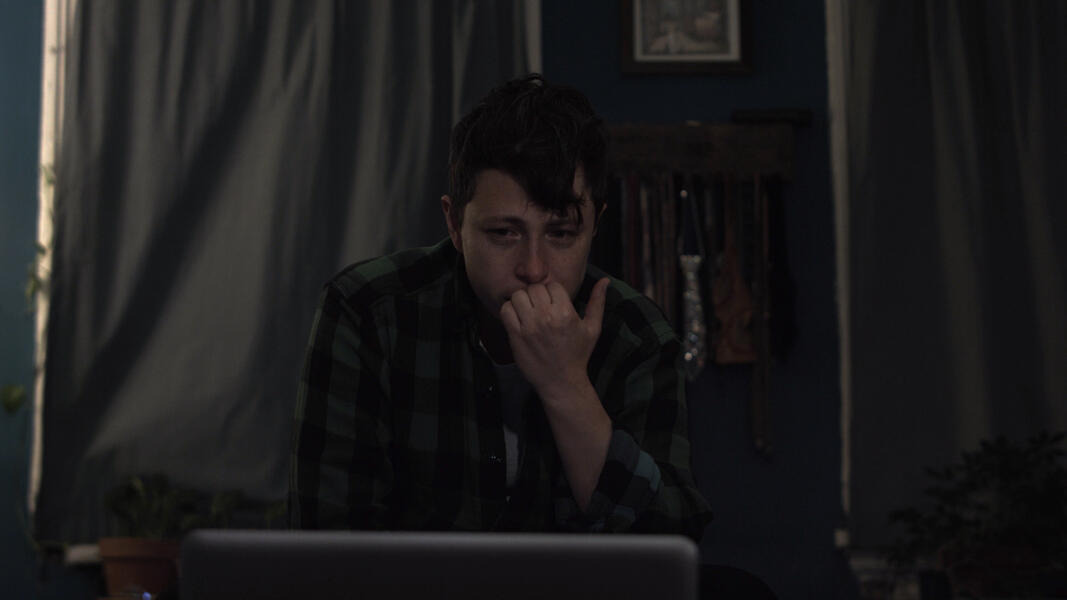 Something to Cry About still 2.jpg
Something to Cry About still 2.jpg -
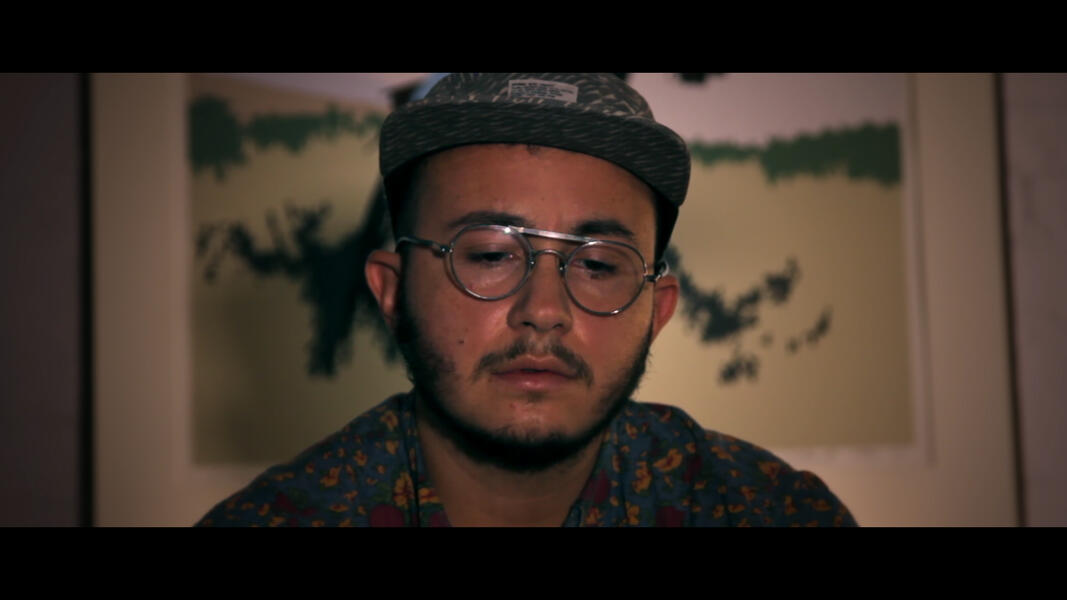 Something to Cry About still 3.jpg
Something to Cry About still 3.jpg -
Something to Cry About (2018) (excerpt)This is a 4-minute excerpt from the middle of a 12-minute documentary. In Something to Cry About three trans-masculine identified people watch a movie or television show that makes them cry. The result is a touching and humorous short documentary that explores the difficulty of expressing intimacy between men, the complexities of desire, and the gift of a good cry.
-
Something to Cry About (2018) (full film)WEBSITE: julesrosskam.com/something-to-cry-about/ SYNOPSIS: In Something to Cry About three trans-masculine identified people watch a movie or television show that makes them cry. The result is a touching and humorous short documentary that explores the difficulty of expressing intimacy between men, the complexities of desire, and the gift of a good cry.
No Place But Between Us (2013)
-
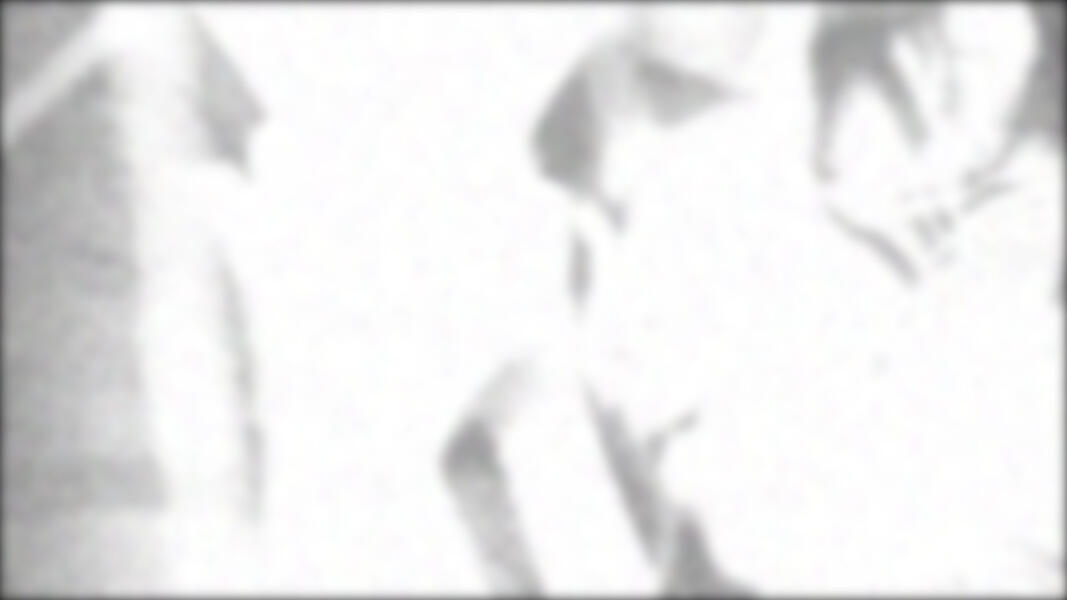 No Place But Between Us still from projection
No Place But Between Us still from projection -
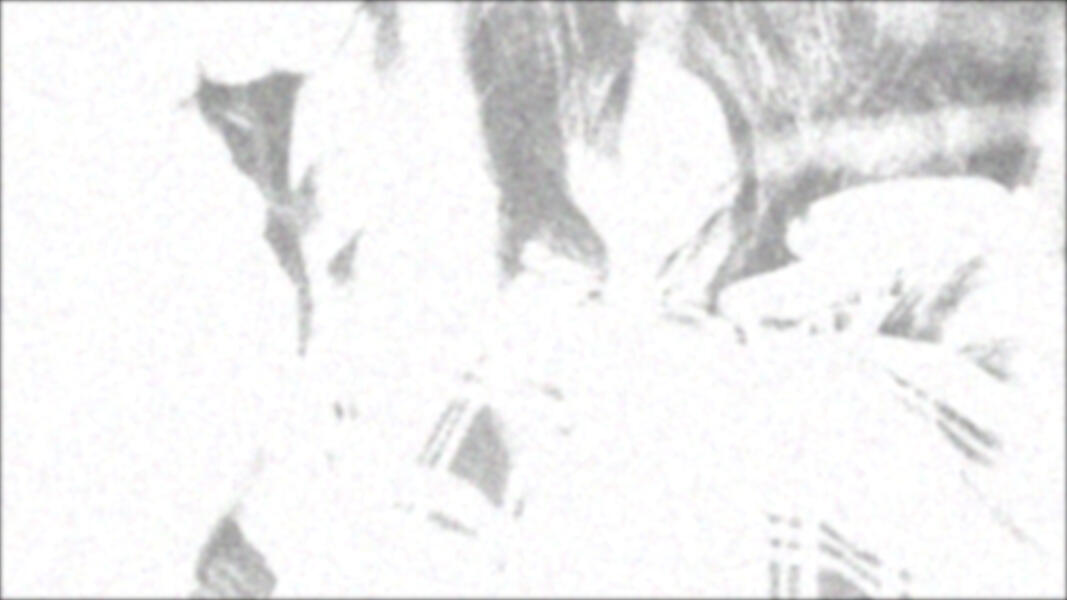 No Place But Between Us still from projection
No Place But Between Us still from projection -
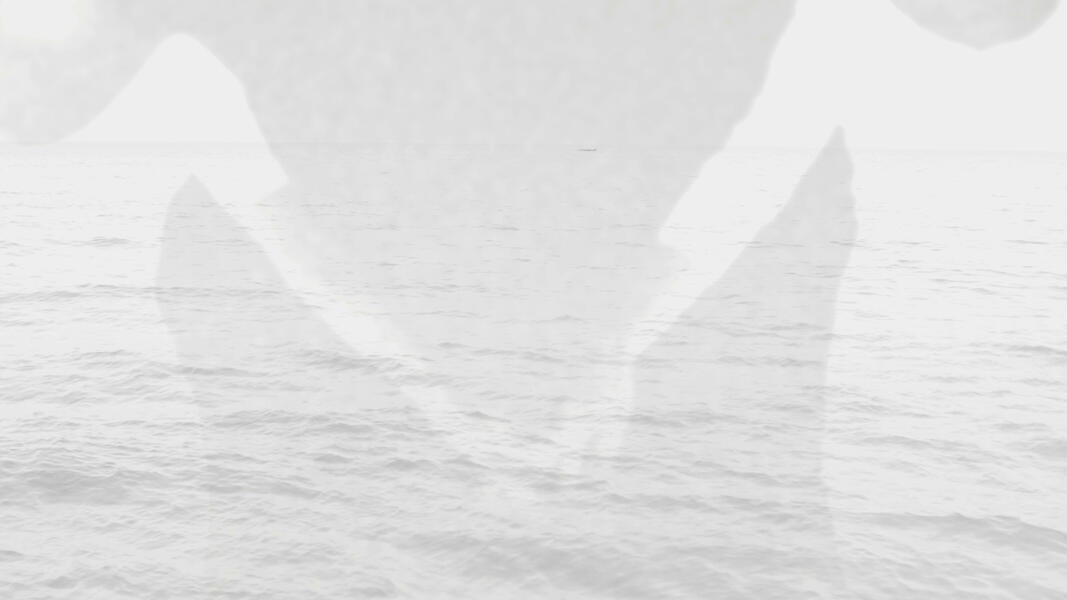 No Place But Between Us still from projection
No Place But Between Us still from projection -
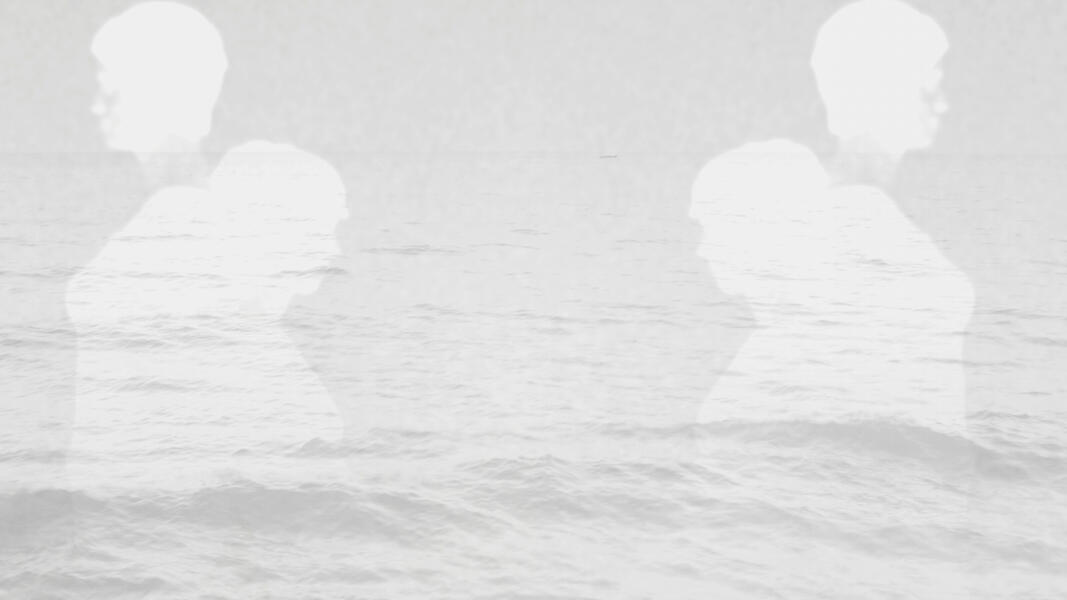 No Place But Between Us still from projection
No Place But Between Us still from projection -
No Place But Between Us (excerpts from live performance), 2013No Place But Between Us is an hour-long expanded cinema project developed while in residency at ISSUE Project Room in Brooklyn, New York. The piece uses projected images, dance, performance, lecture, live music and audience participation to explore cinema and the utopian. Using the works of Emmanuel Levinas, Eva Kittay, Judith Butler, Herbert Marcuse, Toni Cade Bambara, Miranda Joseph, and Lisa Cartwright, I call for a reinvestment in an ethical framework for engaging with one another, in the power of human connection to induce both our undoing and our remaking, and in the potentiality of cinematic space as utopian.
Thick Relations (2012)
Rosskam’s film is not a place to define things, to define people, or relationships. It is an ambiguous cinematic space where every day tasks, dinner conversations, and sexual themes all run parallel in an open and unresolved fashion. Inside of this current, the film’s central characters are permitted to express love in incalculable ways. Thick Relations is a celebration of a queer counterpublic that embraces desire/pleasure as its primary, orienting ethos. In one scene, someone casually remarks, “Once I date someone, they become family.” This is the principle tenet that underscores each character’s respective journey through the film. How is chosen family built, maintained, and mourned?
Screenings
Leather Archives and Museum Chicago
London Lesbian and Gay Film Festival
Kansai Queer Film Festival Japan
-
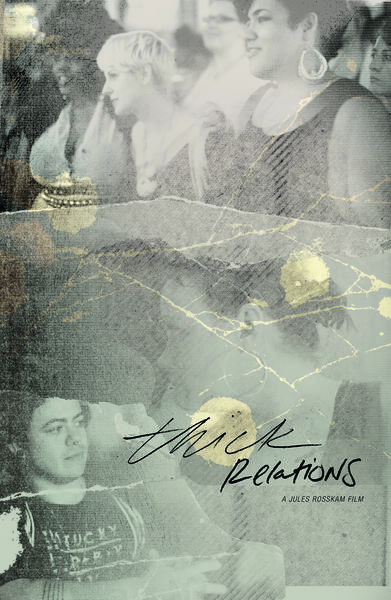 Thick Relations Poster.jpgPoster for the film
Thick Relations Poster.jpgPoster for the film -
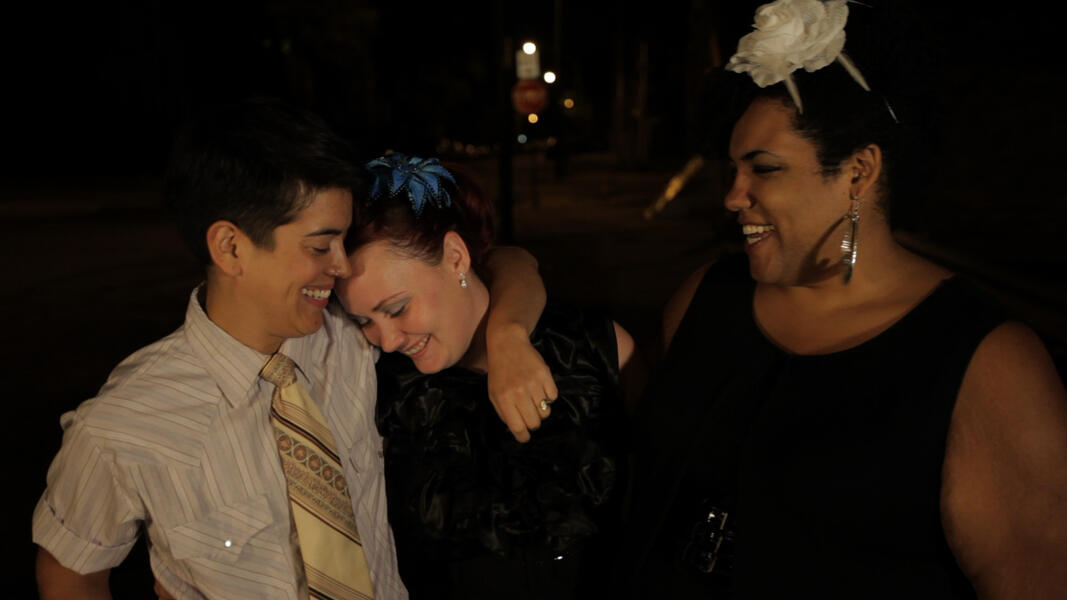 Thick Relations Still1.jpg
Thick Relations Still1.jpg -
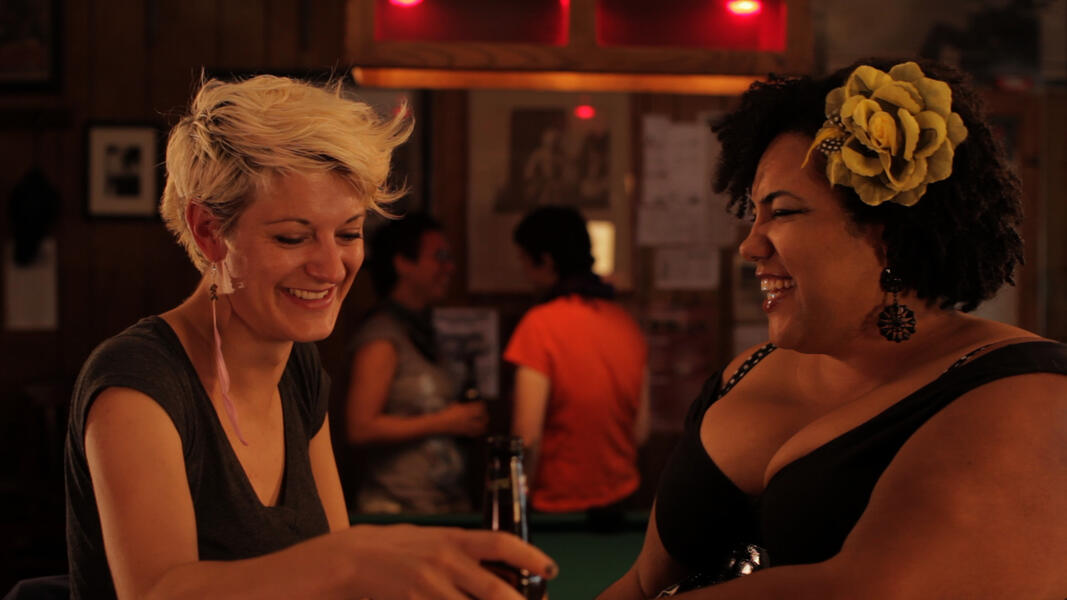 Thick Relations Still 2.jpg
Thick Relations Still 2.jpg -
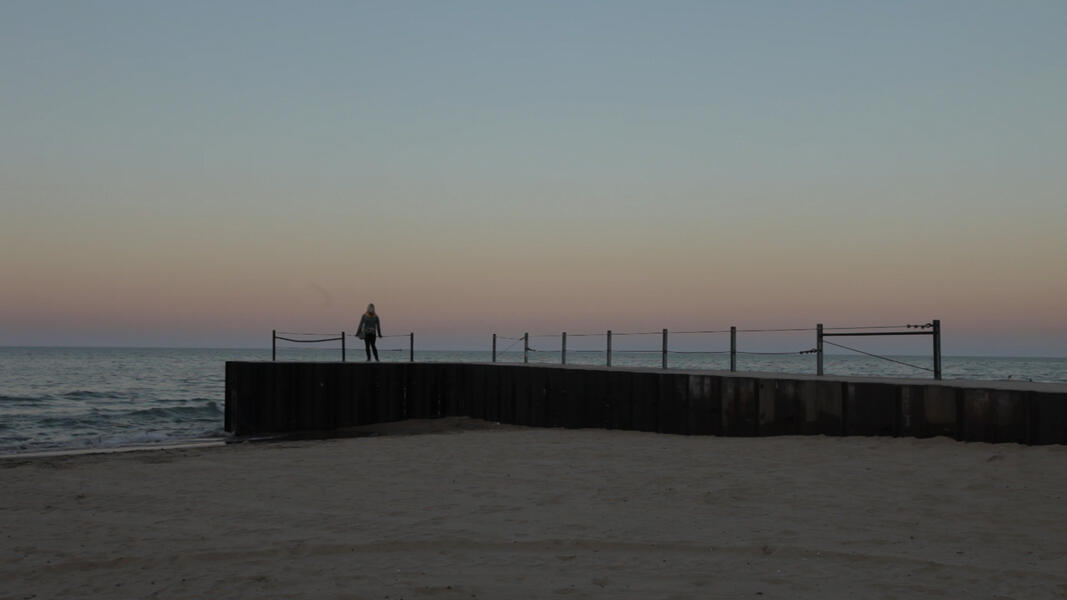 Thick Relations Still 3.jpg
Thick Relations Still 3.jpg -
Thick Relations (2012)This is a 3-minute excerpt from an 85-minute hybrid genre film. Thick Relations is a snapshot of an urban, queer community. Featuring a motley crew of compelling queer anti-heroes, this film constructs and calls forth queer accounts of time, space, and relationality which are unscripted by conventional or institutional forms of social belonging. Thick Relations is a Chosen Family affair. Director, Jules Rosskam uses recurring water images as a metaphor for the fluid promises and potentialities of queer desires and kinships, making his film a celebration of the intimacies that exist outside the normative trappings of “proper” or “mature” romances. In this way, Thick Relations exists as a kind of Anti-RomCom; it defies narrative resolution and allows for relational ambiguity.
-
Thick Relations, 2012 (full film)Existing as an organic blend of documentary and narrative film elements, Thick Relations is a snapshot of an urban, queer community. Featuring a motley crew of compelling queer anti-heroes, this film constructs and calls forth queer accounts of time, space, and relationality which are unscripted by conventional or institutional forms of social belonging. Thick Relations is a Chosen Family affair. Director, Jules Rosskam uses recurring water images as a metaphor for the fluid promises and potentialities of queer desires and kinships, making his film a celebration of the intimacies that exist outside the normative trappings of “proper” or “mature” romances. In this way, Thick Relations exists as a kind of Anti-RomCom; it defies narrative resolution and allows for relational ambiguity. Thick Relations subverts romantic tropes and opts to trace the ways that chosen family arrangements embrace a different logic of love, alliance, and identification.
